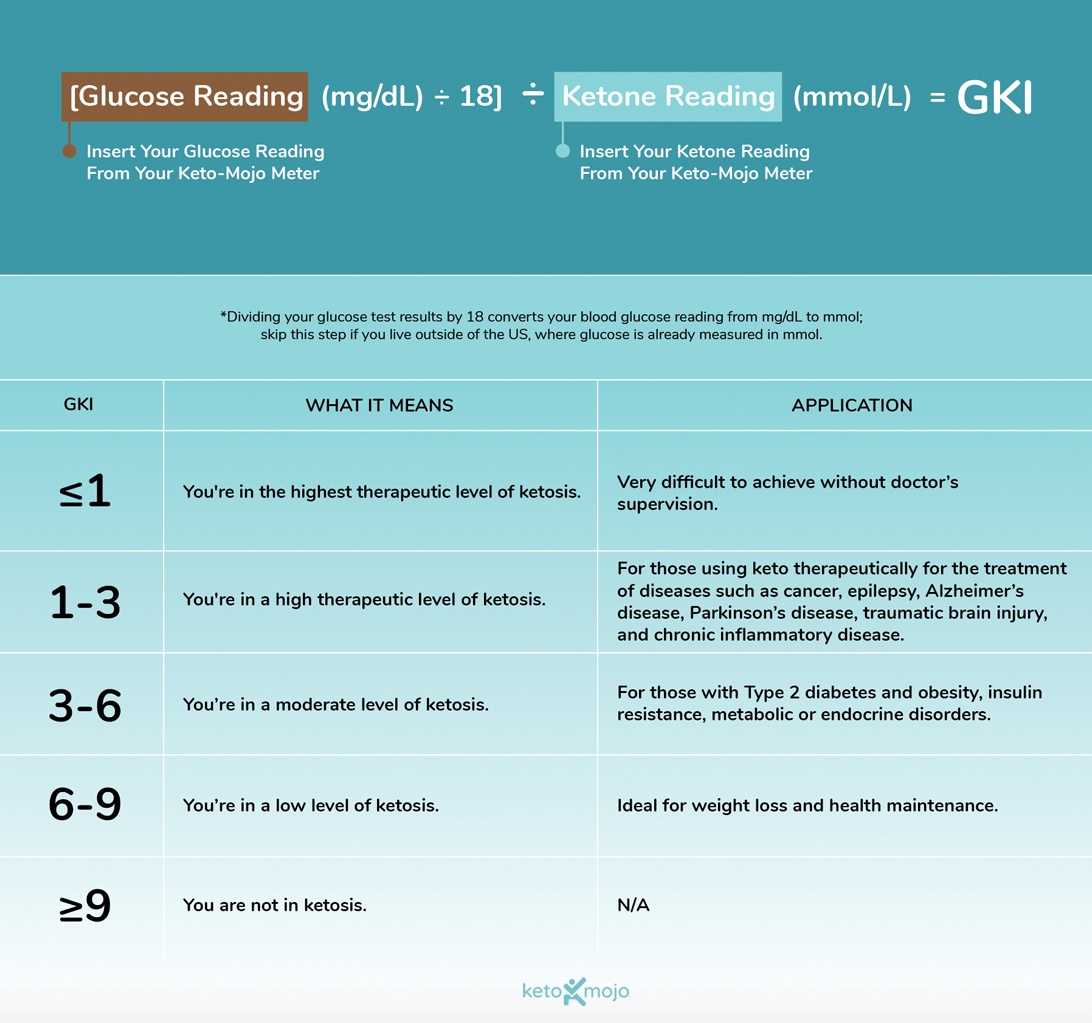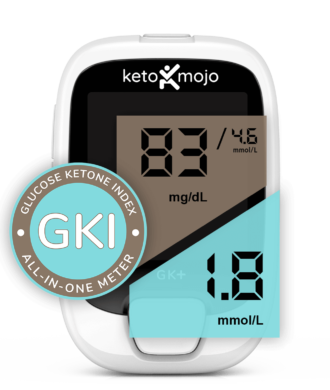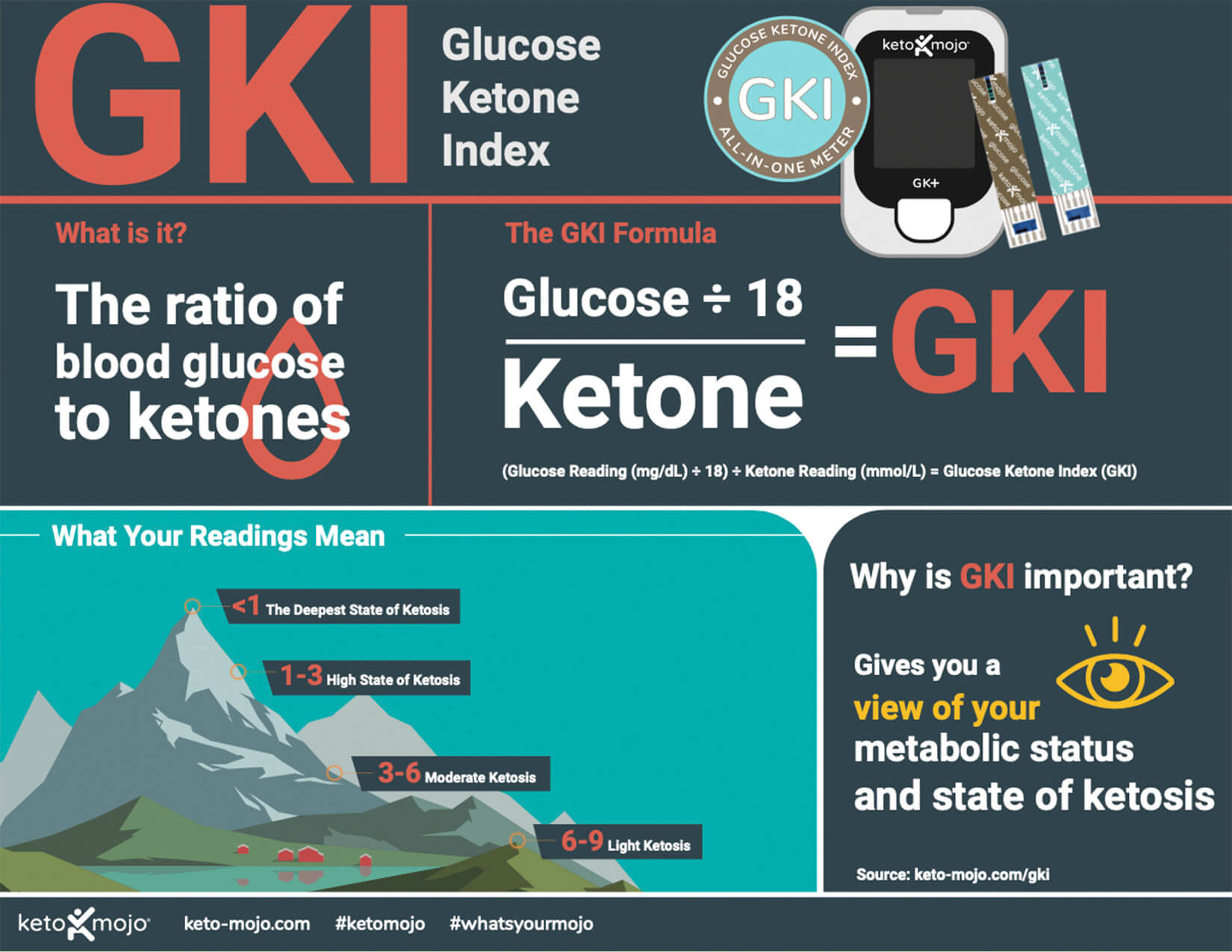Glucose Ketone Index [GKI]
A biomarker for tracking your metabolic health and your state of ketosis.
What is GKI?
You may have stumbled across the term GKI in various keto forums, social media, or even some research studies and wondered, what exactly is GKI? Plainly put, GKI, or the Glucose Ketone Index, is a simple formula that tracks the ratio of blood glucose to ketones as a single value. But more important, it’s a biomarker for tracking your metabolic health as well as your level of ketosis, and it’s easily tracked if you have a blood glucose and ketone testing meter like Keto-Mojo.
If you have a GKI meter model (available in Europe), it can calculate your GKI for you right on the meter. If you have the GK+ meter model (available in the US), you can download the free Keto-Mojo app and the app will automatically calculate it for you. If you don’t use a Keto-Mojo meter, you can use the GKI calculator below.
On their own, glucose or ketone readings give you a snapshot of where you are at this exact moment, which means they can be independently influenced by immediate variables, such as stress (which heightens blood glucose) or a fat-rich meal (which heightens ketones). The GKI gives you a better overall view on your metabolic status and state of ketosis because its calculation takes into account the variables and thus normalizes them, resulting in a more accurate, stable picture of your status.
So, once you know your GKI, you can use it as a tool to help track your ketosis and general metabolic status. In the medical industry, it is also becoming an increasingly important measure for therapeutic ketosis used to manage chronic health conditions, including certain types of cancer, type 2 diabetes, obesity, Alzheimer’s disease, Parkinson’s, chronic inflammatory diseases, epilepsy, insulin resistance, and traumatic brain injury!
CALCULATE YOUR GKI NOW
NOTE: To calculate your GKI, you need to enter your Ketone and Glucose readings into the Keto-Mojo GKI Calculator. If you measure your glucose in mg/dL such as in the U.S., please use the first calculator. If you measure your glucose in mmol/L such as countries in the European Union and Canada, please use the second calculator.
- GLUCOSE in mg/dL
- GLUCOSE in mmol/L
Make sure you click the button after you type in your ketone reading.
Keto-Mojo GKI Calculator (GLU - mg/dL)
Make sure you click the button after you type in your ketone reading.
Keto-Mojo GKI Calculator (GLU - mmol/L)
The GKI Formula & How to Interpret the Results

When and how often should I test my GKI?
Blood glucose and ketone tests should be conducted 2 to 3 hours postprandial (after a meal), twice a day, if possible. Testing twice a day allows you to recognize if and how your dietary intake is affecting your GKI.
How can I lower my GKI reading?
The longer you lead a “clean” ketogenic lifestyle with a diet rich with whole foods, the better your GKI reading will be. You can also affect your numbers through intermittent fasting, reducing stress, and getting adequate sleep (stress and exhaustion can inspire the body to release cortisol, which can spike blood-glucose levels). Identifying and eliminating trigger foods, through blood testing, also helps refine your GKI. If using the GKI for therapeutic purposes, you can consult your doctor.




